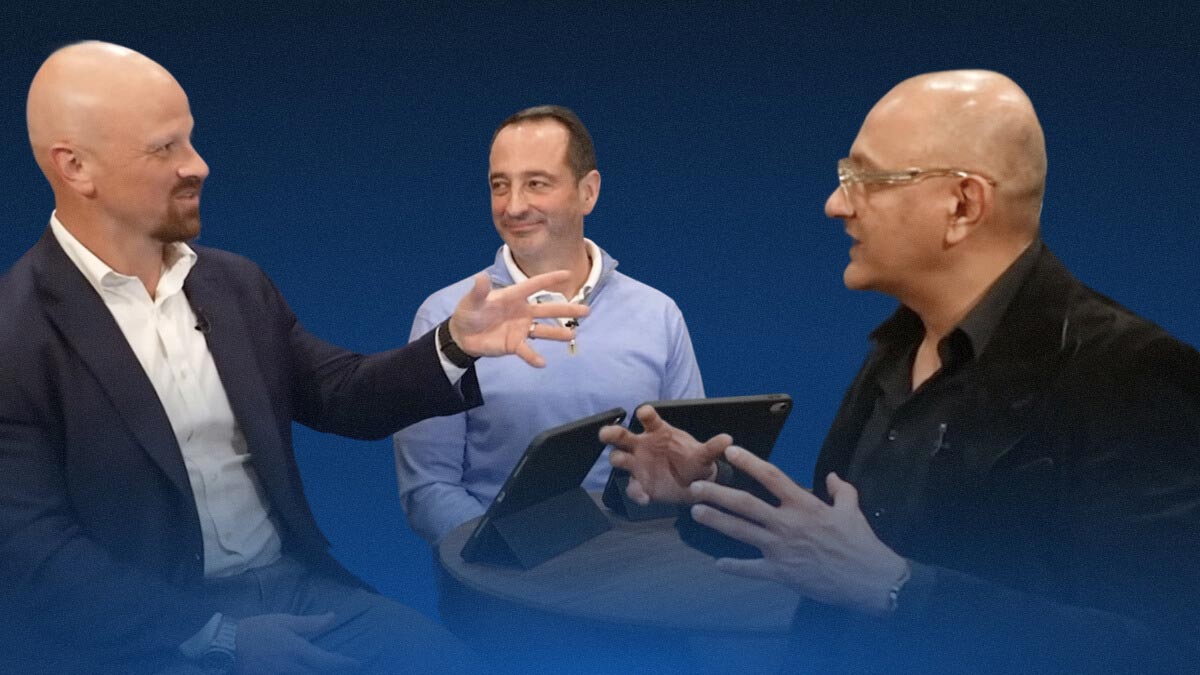Terminal Server, Router, Protocol Translator & More for $3,295
MENLO PARK, Calif., May 4, 1992 -- A new product line that combines four distinct communication server functions in a single box -- yet is offered at prices typically associated with dedicated terminal servers -- has been unveiled by Cisco Systems.
The Cisco Communication Server (CCS) family is the first to group the functions of a multiprotocol terminal server, asynchro- nous (dial-up) router, gateway server (protocol translator) and telecommuting server in one box. The two-member family -- the single-board 500-CS and the nine-slot ASM-CS -- replaces Cisco's earlier generation of terminal server-only units.
Communication Server Redefined
John Morgridge, Cisco president and CEO, said, "The intro- duction of our CCS line signals a redefinition of what customers will expect from a so-called `communication server.' When users can have multiple functions in one cost-effective box, they will no longer be willing to pay thousands of dollars each for separ- ate devices that connect terminals, translate protocols, route data over ordinary phone lines and tie in home-based users.
"The CCS line complements Cisco's base of widely installed internetwork routers," Morgridge added, "by bringing the remote office or individual home worker -- who has access only to the public telephone system -- into the fold of the enterprise net- work without adding significantly to the network's overall cost."
The CCS line combines an unprecedented range of flexible, low-cost connectivity options with features -- such as the OSPF routing protocol -- usually found only in high-end routers. The user can connect up to 112 terminals (including X terminals), PCs, printers or modems to TCP/IP or LAT networks using asynchronous communication ports. The user also can create an asynchronous routing internetwork that allows multiple PCs or terminals to access a remote or central site through a single dial-up line, eliminating multiple phone lines and modems.
The Four Functions: Terminal Server, Dial-Up Router...
As terminal servers, the CCS units offer the industry's broadest array of virtual-terminal protocols, including Telnet, tn3270, rlogin, LAT and X.25 PAD. Users can establish multiple sessions and switch easily among them.In IBM environments, a standard ASCII terminal can emulate a 3270 terminal and access an IBM host across an IP network, while in DEC installations, terminal connections to VMS hosts are supported. The new X.25 PAD (packet assembler/disassembler) capability, available on ASM-CS models equipped with a synchronous interface, allows direct connection between terminals and X.25 hosts over an X.25 network, eliminating the need for a separate X.25 PAD device.
For remote or small offices where synchronous communication is prohibitively expensive, the CCS family provides low-cost asynchronous IP routing over ordinary telephone lines. By channeling traffic through a single CCS unit using a dial-up phone line, such offices can eliminate multiple lines and modems on PCs and terminals, realizing dramatic cost savings.
Like all Cisco routers, the CCS units support industry- standard routing protocols (OSPF, IGRP, RIP, EGP and BGP), freely translating and distributing routing information between them. They also include such features as access lists for multiple levels of security, priority output queuing (to give selected devices precedence in transmitting data), and IP accounting.
...Protocol Translator, Telecommuting Server
As a gateway server, the CCS provides protocol translation between Telnet, LAT, rlogin, X.25 and tn3270, permitting full intercommunication between devices running these protocols. This capability, previously available only on Cisco's internetwork router/bridges or dedicated synchronous protocol translators, allows up to 80 concurrent translation sessions.As a telecommuting server, the CCS products also support the increasing number of users working at home or using laptop computers on the road. Using the Serial Line Internet Protocol (SLIP), Compressed SLIP, or the Point-to-Point Protocol (PPP), users can run such TCP/IP applications as file transfers or mail transfers over serial lines, their devices as fully functional as if connected locally to the network. And for telecommuters using X terminals, Cisco offers the industry-standard XRemote protocol, developed by Network Computing Devices, which supports data transmission at 10 times the rate of SLIP.
Two Hardware Platforms Maximize Flexibility
The CCS family's entry-level model is the single-board 500-CS, with 8 or 16 asynchronous ports; its standard 2 megabytes of memory is expandable to 4 or 10 MB. Based on the MC68331 processor, the unit offers both RS-232 and RS-423 serial communication, as well as hardware and software flow control.The 500-CS combines Cisco software with hardware designed and manufactured by Emulex of Costa Mesa, Calif., to Cisco speci- fications. It replaces Cisco's STS-10x terminal server model.
Cisco's nine-slot ASM-CS is a modular unit with up to 112 ports. It offers a choice of processor cards -- an MC68020 with 4 MB of memory or an MC68040 with 16 MB -- plus a selection of synchronous serial, Ethernet or token ring interfaces, and Flash Memory. The ASM-CS replaces the earlier MSM and ASM terminal server-only units. Previously installed MSMs and ASMs can be upgraded with CCS functionality.
Memory Architecture Raises Barriers
Added to the CCS family's four-pronged functionality is an architecture which employs a dynamic memory allocation scheme unique among communication servers. Bruce Byrd, product line manager, said, "Certain protocols require many times the 2-3 KB of memory used by LAT or Telnet -- up to 32 KB for tn3270 and 150 KB for XRemote. Classic terminal server software architectures allot each port a designated amount of memory, so that a specific port would have to be dedicated to XRemote, for example, quickly using up system memory."In contrast, the CCS architecture allows the total system memory to be used more efficiently as a single `memory pool,' so that every port has access to every feature of the system. This feature will erect definite barriers to others wishing to upgrade their products to match our functionality."
Pricing/Availability
Available in the third quarter, the Cisco 500-CS is priced at $3,995 with16 ports and $3,295 with 8 ports (each with 2 MB of RAM). Available in thefourth quarter, the ASM-CS is priced at $12,995 with 80 ports and at$14,495 with 112 ports (each with a 68020 CPU and 4 MB of RAM). Optionalsupport for LAT and protocol translation is $450 for the 500-CS and $1,400for the ASM-CS. ASM and MSM upgrades are free of charge to users enrolledin Cisco's software maintenance program.Cisco Systems, Inc., is the leading global supplier of high- performance, multimedia and multiprotocol internetworking products, including routers, bridges, communication servers and network management software. Cisco technology can be used to build enterprise-wide networks linking an unlimited number of geographically dispersed LANs. Cisco is publicly traded over-the-counter under the NASDAQ symbol CSCO.



